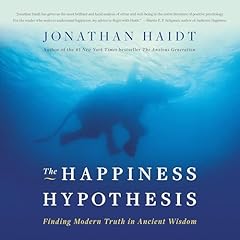
I Am a Strange Loop
No se pudo agregar al carrito
Solo puedes tener X títulos en el carrito para realizar el pago.
Add to Cart failed.
Por favor prueba de nuevo más tarde
Error al Agregar a Lista de Deseos.
Por favor prueba de nuevo más tarde
Error al eliminar de la lista de deseos.
Por favor prueba de nuevo más tarde
Error al añadir a tu biblioteca
Por favor intenta de nuevo
Error al seguir el podcast
Intenta nuevamente
Error al dejar de seguir el podcast
Intenta nuevamente
 Exclusivo para miembros Prime: ¿Nuevo en Audible? Obtén 2 audiolibros gratis con tu prueba.
Exclusivo para miembros Prime: ¿Nuevo en Audible? Obtén 2 audiolibros gratis con tu prueba.
Elige 1 audiolibro al mes de nuestra inigualable colección.
Acceso ilimitado a nuestro catálogo de más de 150,000 audiolibros y podcasts.
Accede a ofertas y descuentos exclusivos.
Premium Plus se renueva automáticamente por $14.95 al mes después de 30 días. Cancela en cualquier momento.
Compra ahora por $35.09
-
Narrado por:
-
Greg Baglia
Los oyentes también disfrutaron:




















Reseñas de la Crítica
"[F]ascinating... original and thought-provoking.... [T]here are many pleasures in I Am a Strange Loop."--Wall Street Journal
"I Am a Strange Loop is thoughtful, amusing and infectiously enthusiastic."--Bloombergnews
"I Am a Strange Loop scales some lofty conceptual heights, but it remains very personal, and it's deeply colored by the facts of Hofstadter's later life. In 1993 Hofstadter's wife Carol died suddenly of a brain tumor at only 42, leaving him with two young children to care for.... I Am a Strange Loop is a work of rigorous thinking, but it's also an extraordinary tribute to the memory of romantic love: The Year of Magical Thinking for mathematicians."--Time
"I Am a Strange Loop is vintage Hofstadter: earnest, deep, overflowing with ideas, building its argument into the experience of reading it-for if our souls can incorporate those of others, then I Am a Strange Loopcan transmit Hofstadter's into ours. And indeed, it is impossible to come away from this book without having introduced elements of his point of view into our own. It may not make us kinder or more compassionate, but we will never look at the world, inside or out, in the same way again."--Los Angeles Times Book Review
"Nearly thirty years after his best-selling book Gödel, Escher, Bach, cognitive scientist and polymath Douglas Hofstadter has returned to his extraordinary theory of self."--New Scientist
"His new book, as brilliant and provocative as earlier ones, is a colorful mix of speculations with passages of autobiography."--Martin Gardiner
Las personas que vieron esto también vieron:


















Then it wanders off into thinking having heard stories from someone else equates somehow to that person being inside someone else, as if memories or experiences would telepathically be understood by the person who shared a story. The book fully mistakes the inaccurate version of someone else in our head for that person, in a way fiction a century ago as One, No One and One Hundred Thousand by Luigi Pirandello better understood and explained the absurd disconnect. It treats having the personality traits of someone else for being that person, as if we could punish a deceased historical figure by some modern person acting enough like them, or as if cumulative lead poisoning affecting personality traits somehow means a person being kindly treated isn't the same continuous self in there. It oversimplifies a situation, then takes a wild leap with conclusions that clearly aren't connected with basic observation.
I've kept listening long after it slipped off the rails in hopes of finding additional useful ideas like those from the start and middle, but it's getting harder to reach the end.
I will say the start and middle made this worth picking up, I'm just not sure I'd suggest finishing it.
Starts good, last third is illogical magical thinking
Se ha producido un error. Vuelve a intentarlo dentro de unos minutos.
it will make you think about thinking
Se ha producido un error. Vuelve a intentarlo dentro de unos minutos.
Disagree with much, but still recommend
Se ha producido un error. Vuelve a intentarlo dentro de unos minutos.
Must reading for thinking persons
Se ha producido un error. Vuelve a intentarlo dentro de unos minutos.
interesting but too long
Se ha producido un error. Vuelve a intentarlo dentro de unos minutos.


